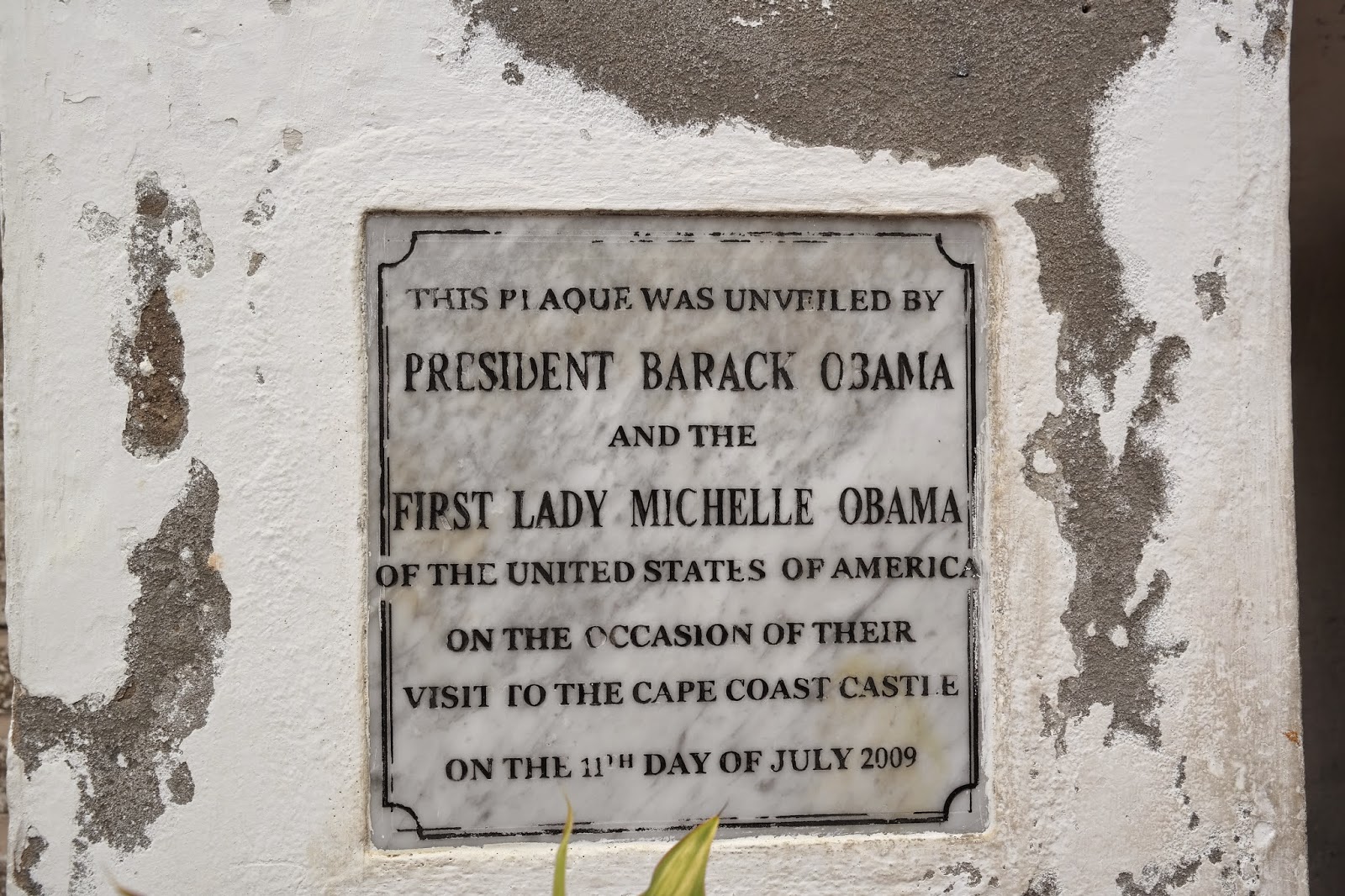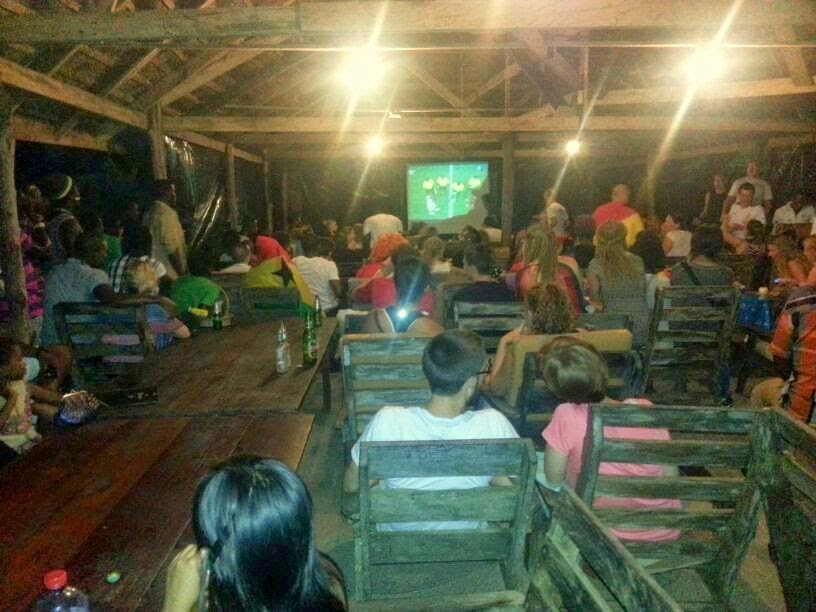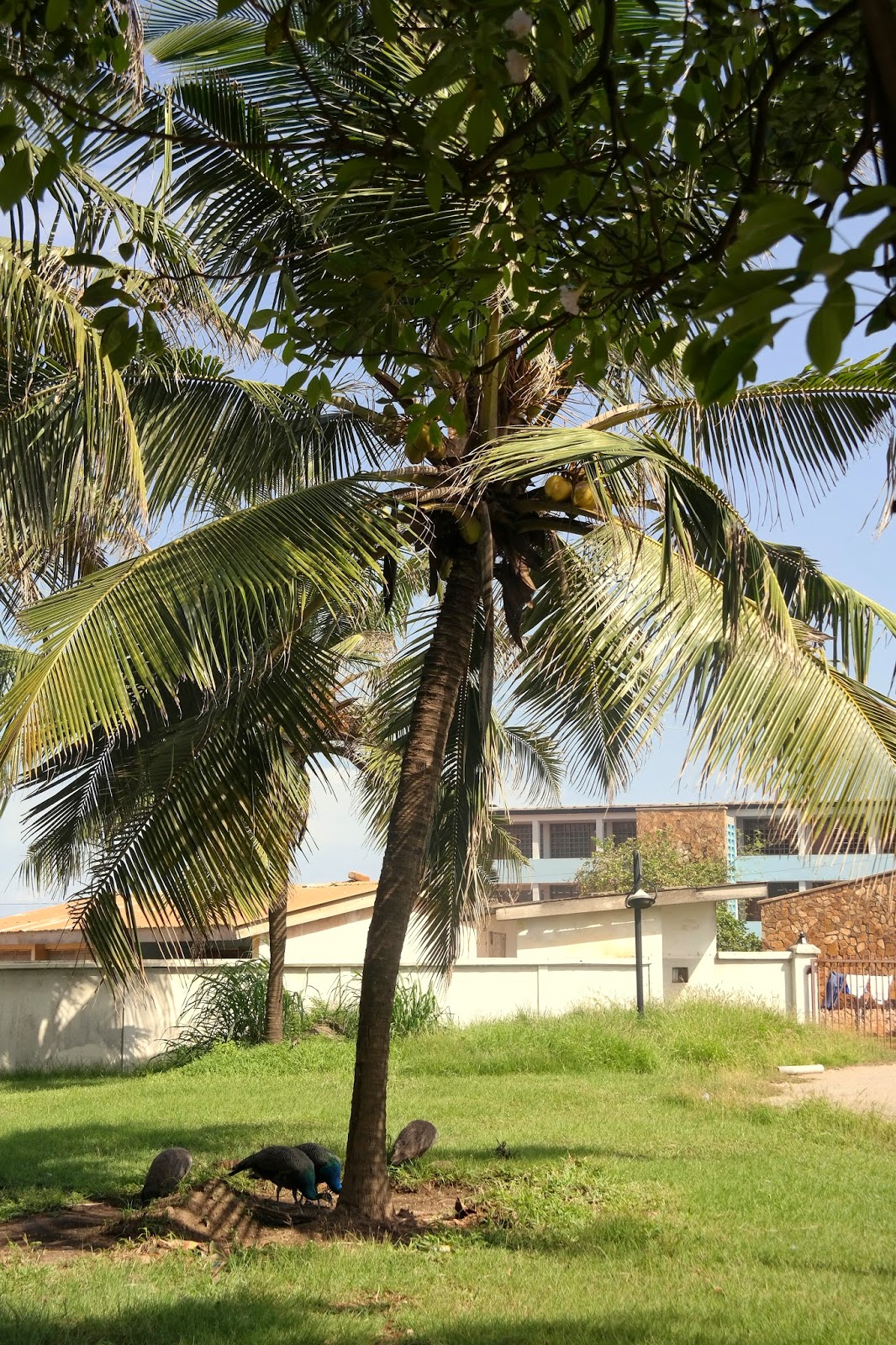It was Sunday morning. I woke up early in order to indulge my breakfast in my Oasis.I picked up my Africa book and sat at a table close to the beach. I ordered the popular Milo chocolate beverage, which came to pieces. Hot water, milk, sugar cubes and Milo- chocolate powder. The kind waitor helped me to cook my drink.
In a while the rest of the company woke up and we moved to the beach. An interesting everyday scene was unfolding before our eyes. A dozen of big fishermen were dragging the nets out of the sea. They were also singing a motivational fishing song in an African language. The nets were spread far into the sea and judging from the hard effort depicted in the fishermen's faces, fishing was not an easy case. The majority of the fishes was gathered at the end of the nets. Nontheless some small fishes and sea snakes were accidentally caught on the way. They were collected carefully in plastic buckets by naked experienced kids. A man approached them and bargained on the price of the catch with the liliputian fishermen.
When the entire net was laying successfully on the shore the song seazed. Turmoil prevailed among the group. They were argueing upon the share of the catch. The amount of the fish each would take home, was depending primarily on the personal contribution. Some were accused of inadequate input in the fishing process, while others underlined their essential help.
A girl, selling sachets of water, passed slowly in front of us. Her eyes were modestly looking at our direction. On her attempt to bring the heavy platter down, half of the sachets fell clumsily on the ground. She picks it up hastily, while shame was conceivable in her moves. Another woman was selling fried bread and cut it wide open to fill it with peanut butter. When the fishermen had vanished from our eyesight and everyone had taken a generous breakfast was time to head to the Cape Coast Castle (http://www.ghanamuseums.org/forts/cape-coast-castle.php).
Driven by ignorance, a day before I had asked my Ghanian friend and guide, if Cape Coast Castle is an exciting place. He answered with a mysterious tone that I will figure out myself. So I did. Excitement was not the feeling that Cape Coast Castle caused to me, rather bewilderment, shame and repugnance. The place, where we were standing, was actually one of the thirty "slave castles", where the slaves were held before shiped once and for all to the "New World", America. A spirited guide narrated the dreadfull history of the Castle. It had changed several hands in the past. Portuguese, Swedes, Danes, Dutch, French had passed from this strategic venue for trade, before the British established their power. For 150 years, the atrocious exploitation of human life had been the most prolific source of wealth for the Europeans and Americans. Cape Coast castle is a painful reminder of this inhuman human activity.
The captives generated from many neighbouring african countries and were forced to come to Ghana by foot. The captives, who had survived the unfavourable trip were to be held underground until they were picked, sold and shiped away. Sometimes this process lasted even months Our first stop was the main concentration room for the men slaves. It had a tiny hole high on the wall and the atmosphere was sultry. It was imposible to imagine that a thousand men used to be held in that room. Scientific findings confirmed that the ground was covered by layers of human waste, blood and urine.
Close to this room the Europeans had built a church in order to not miss the chance to pray to their God. Ha! How ironic!
The next room was the cell where the people who dared to escape were to find excruciating death. The room had no windows at all and the walls were extremely thick. No food, no air, no light was accesible to the sentenced. Scratches on the walls and the floor gave away the pointless struggle of the slaves for survival. It felt as if the walls screamed from the horror of the untold human tragedies.
The women were held separately. Some of them were destined to become sex slaves. The children, who were born via rapes, were given European names and received western education. This way a new caste arose.
The "Gate of no return" was leading straight to the atlantic ocean. Its name was attributed to the fact that any slave who passed it would never view Africa again. The guide assured us bitterly that we will return.
Then we moved to the first floor, which belonged to the commander of the Castle. The contrast was unbearable. The space was huge, with vast windows, which allowed plenty of air and light to go through the rooms. A question was swirling in my mind: How could he ever sleep in this luxurious apartment while at the same time over a thousand people were dealing with diseases, hunger, fear, solitude, many of whom leaving their last breaths just a floor below?
“Those who deny freedom to others, deserve it not for themselves”
― Abraham Lincoln, Complete Works - Volume XII


























































